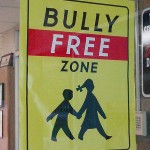Memories of Sensenbrenner Hall (Part 4)
 In 1973 and at the age of 24, I walked into Sensenbrenner Hall for the first time, hoping I could transfer from Chicago Kent to Marquette. My husband had been offered a teaching position at Menomonee Falls East High School and I was happy to return to my home state. I met with Dean Bob Boden who could not have been more gracious in telling me that Marquette would be happy to let me enroll as a 2L. So in the fall of 1973 I began classes with the 2Ls (except that I had to take Professor Aiken’s first year civil procedure year long course…an experience in and of itself). In part, it was like starting law school all over again.
In 1973 and at the age of 24, I walked into Sensenbrenner Hall for the first time, hoping I could transfer from Chicago Kent to Marquette. My husband had been offered a teaching position at Menomonee Falls East High School and I was happy to return to my home state. I met with Dean Bob Boden who could not have been more gracious in telling me that Marquette would be happy to let me enroll as a 2L. So in the fall of 1973 I began classes with the 2Ls (except that I had to take Professor Aiken’s first year civil procedure year long course…an experience in and of itself). In part, it was like starting law school all over again.
There was no orientation or introduction to anything at the law school. My first memory of meeting a student occurred when, on that first day, I was standing next to Barbara Berman. As many of you may recall, we lived, sat and interacted in alphabetical order. My last name at the time was also Berman. After Barbara found that out she said, “I hope you are smarter than me so if we get mixed up, I can benefit from it.” That was the beginning of our life long friendship.


 As I listened to the political pundits argue about
As I listened to the political pundits argue about